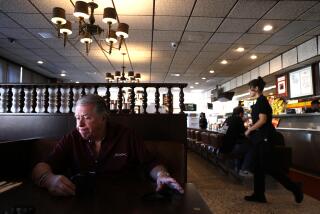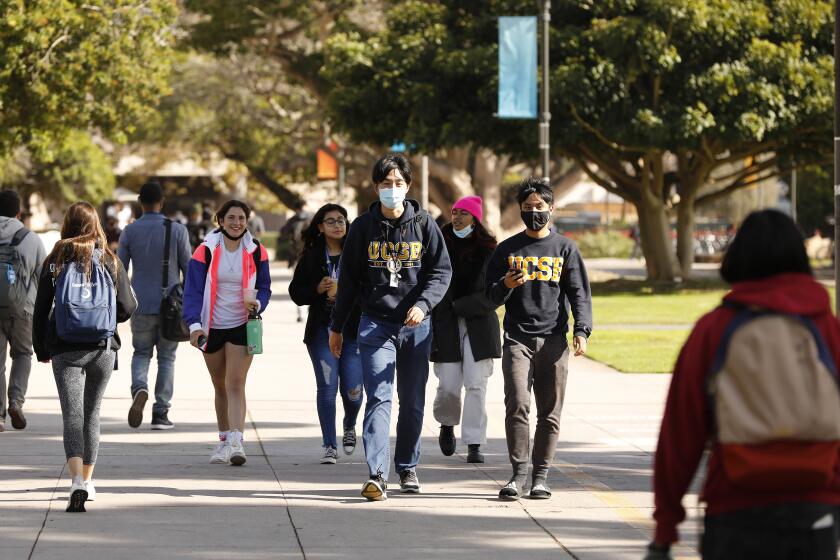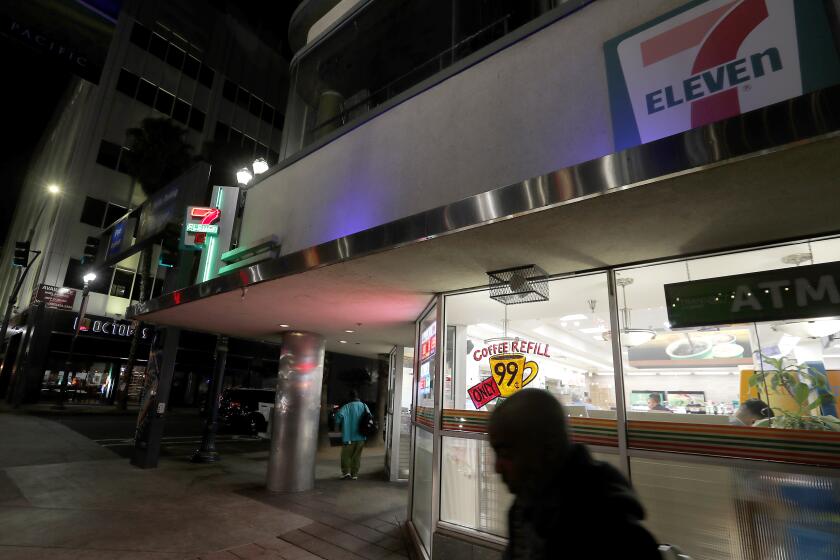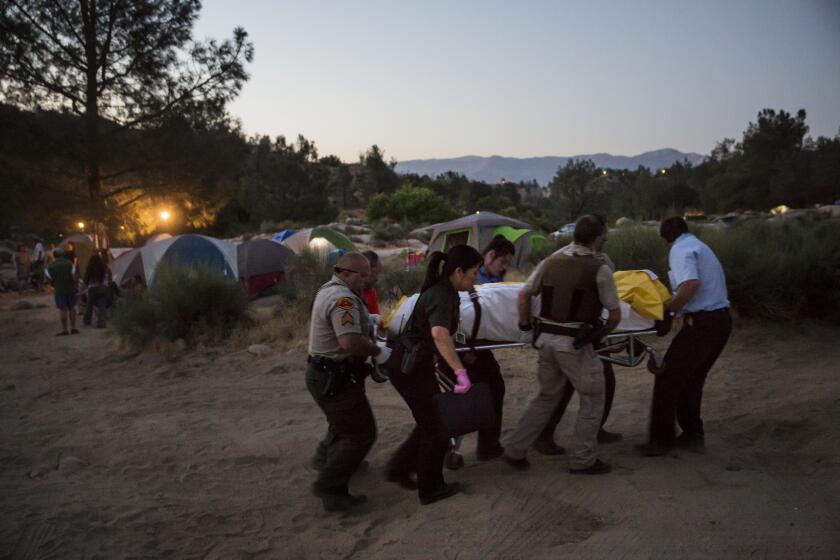Hindsight Blurs Image of a Visionary
The first time I saw Delano, it was from the back seat of a ‘60s Volkswagen. We had rolled into town from San Francisco, and I remember sitting crossways in that cramped seat, knees higher than my head, peering out the back window. From this peculiar vantage point the five-and-dimes and Mode O’Day stores of downtown rolled past. It was the summer of 1968, and we had come to find Cesar Chavez.
He was holding a rally for the grape strike. There was always a grape strike back then, and Chavez’s struggles in the fields had transformed Delano into something more than a valley town. In those days, you said “Delano” the same way you said “Selma.” It was a symbol. So we came here, just another bunch of white kids looking for the cultural action.
We walked into the farm workers headquarters, an old church sitting on a patch of dirt. I remember the hall packed with brown faces and the heat so intense it seemed to press against my skin. The four of us were the only white people in the room and there were some glances. Suddenly we began to feel very gringo.
Chavez was speaking in his easy, conversational way, sometimes in Spanish, sometimes in English. He must have seen us and noticed the discomfort because, without breaking stride, he said, “And we want to welcome our visitors who have come to support La Causa.” He raised his fist in a quick salute, and, just like that, we had been stamped as OK. The meeting proceeded.
That was the unusual quality about Chavez, and I always believed that it was the quality that helped make the farm worker movement so successful. Unlike other ethnic leaders of the time, Chavez did not confuse matters. If you came to help, or just show support, you were made welcome. Other issues did not obtain. The point was to get the farm workers what they wanted.
And what the farm workers wanted also seemed wonderfully simple and clear. They didn’t want “Freedom” or “Power Now,” they wanted a union with contracts. When Chavez called a strike, the reason was the union. When he asked consumers to boycott grapes, the reason was the union.
Or so it seemed. Now, of course, some rethinking is in order. Somewhere the United Farm Workers went seriously wrong, and what seemed clear so long ago is clear no longer.
Drive up and down the San Joaquin today and you will find virtually no remnant of the UFW. Field offices have closed, phones disconnected. From a high of 100,000 dues-paying members in 1979, the UFW now claims 20,000 and outside experts put the real figure between 7,000 and 9,000.
With the decline of the UFW, the dream of unionizing California’s farm workers has also died. Chavez’s union now holds no labor contracts for grapes whatsoever. In all California, only 15,000 of the 350,000 farm workers are now organized.
What happened to the UFW? Chavez and the few remaining union leaders have tried to blame Gov. George Deukmejian and his appointees to the state’s Agricultural Labor Relations Board, but that’s largely hogwash. Regulatory boards, even unfriendly ones, don’t kill unions.
No, it’s becoming apparent that the vandal of the UFW is Chavez himself. There is mounting evidence to suggest that, startling as it seems, Chavez never trusted or even wanted the farm worker union he worked so brilliantly to create.
Saul Alinsky, the organizer who served as Chavez’s mentor long ago, saw this dilemma within Chavez. Talking to author John Gregory Dunne during the Delano strike, Alinsky said, “Chavez doesn’t like unions. He thinks they’re all a bunch of rackets.”
That may explain why Chavez, in the late 1970s, repeatedly drove away his best organizers, his best lawyers, his best administrators, in a series of purges. It may explain why he moved the UFW headquarters out of Delano to a monastery-like retreat high in the Tehachapis. You don’t operate a labor union from a monastery.
And it helps explain why he now pursues a new grape boycott with little or no connection to the union. Granted that the misuse of pesticides is a worthy issue, how will that issue help revive the union?
The answer is, it probably won’t. Because the real purpose likely has little to do with the union. The new boycott is there to raise money for the UFW through its massive direct-mail campaigns. Direct mail has obvious advantages over union-organizing: It avoids the messy confrontations and produces higher profits. Last year, it has been reported, the UFW received $3.4 million in donations.
It could be argued that Chavez actually is a visionary, not a practical man, and should be allowed to address other issues. Fine. Let him speak out on rain forest destruction and nuclear weapons. But who, then, gives the farm workers the simple thing they always wanted: a union with contracts?
More to Read
Sign up for Essential California
The most important California stories and recommendations in your inbox every morning.
You may occasionally receive promotional content from the Los Angeles Times.





